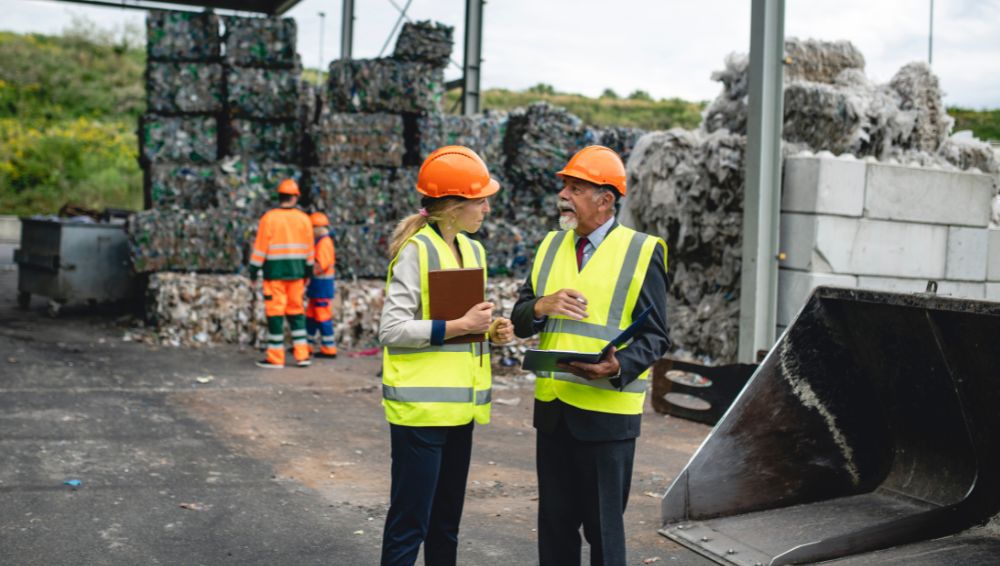Are you thinking about getting a roll-off dumpster for your home or business? If so, you’ll need to know the rules about what can and can’t be thrown away.
While many items can be added to dumpsters without any problems, there are some that need to be separated out.
To help you stay compliant with waste management dumpster rules, we’ve compiled a list of materials that need to be sorted before being added to a dumpster.
By knowing what can and can’t go into your dumpster, you can avoid potential problems down the line.
What Types of Debris are Keep Separate?
When it comes to residential projects that involve removing standard junk and debris, everything can usually be thrown together.
This might include non-organic trash, cardboard, mold documents, carpet, and even organic material such as mulch, sod, and grass.
However, if you are working on a construction project, you will want to keep separate specific items including metal, concrete, and roofing shingles, if possible.
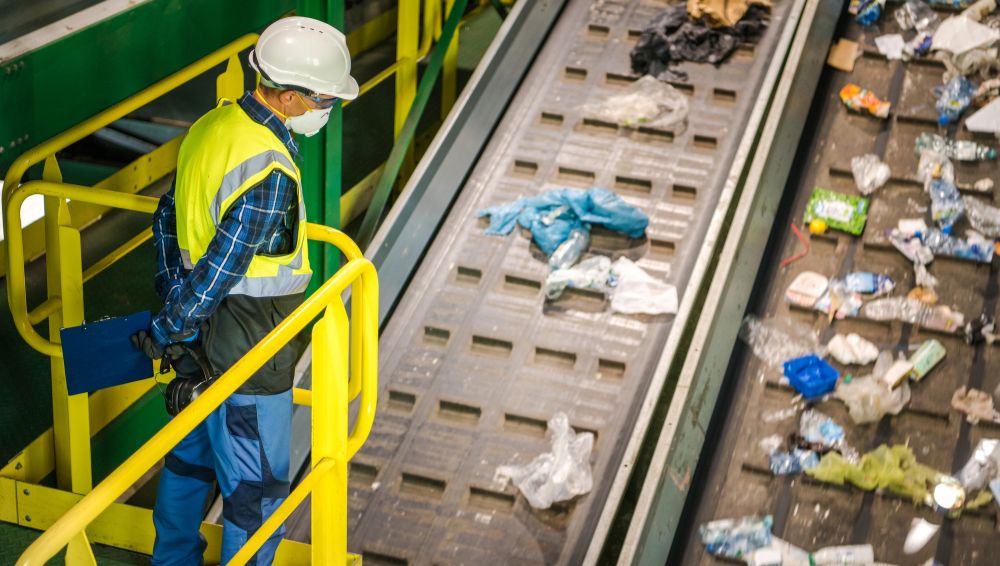
What cannot Place Into a Dumpster?
Many people have leftover paint or other liquids from previous projects around the house. While it may be tempting to just throw these materials in the trash, most of the time that’s not the right way to dispose of them.
Depending on the material, you may need to take it to your municipal solid waste facility so it can be properly disposed of.
The rules for waste management exist to protect our environment. Landfills won’t allow certain materials to be buried because they can seep into aquifers and contaminate the water supply.
Another item that can’t be thrown in the dumpster is rubber tires. Tires are made of petroleum, so when they’re incinerated, they release harmful chemicals into the air.
Pyrolysis is a process that breaks down tires into smaller pieces so they can be burned as fuel.
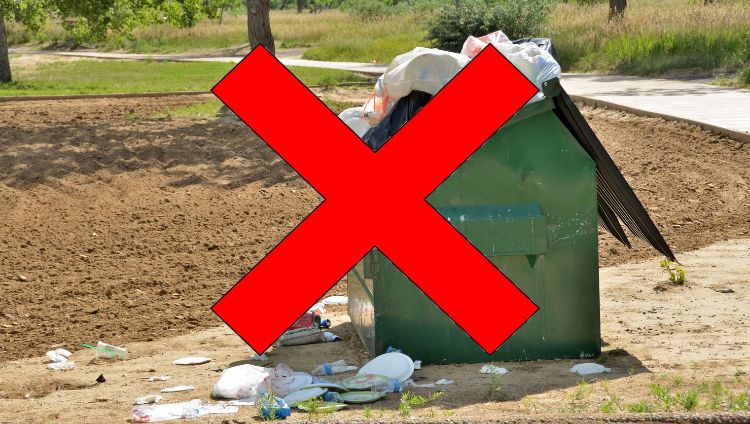
Rules Regarding Roll-off Dumpster Usage
Knowing which items can be disposed of in a dumpster is crucial. Generally, everyday household waste and non-hazardous items are allowed, including old mattresses, tables, empty paint cans, water-damaged items, rebar, soil, and clothing.
Furthermore, it’s acceptable to dispose of old toys, cardboard boxes, fire-damaged materials, sinks, and roof shingles. Construction teams often use dumpsters to discard lumber and roofing materials as well.
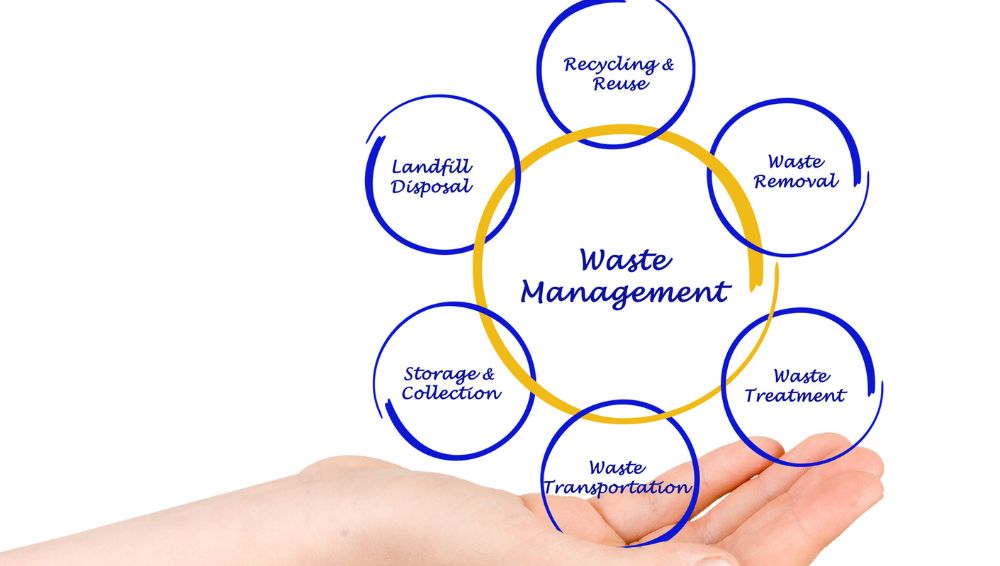
Why Do People Use Roll-Off Dumpsters?
If you’re a homeowner, you might need a roll-off dumpster for your next project. For example, during renovations or when you’re improving your house, you’ll likely generate a lot of waste material that you’ll need to dispose of.
For example, Construction businesses use these dumpsters all the time – sometimes they need to be emptied every day.
The materials in the dumpsters might include drywall scraps, shingles, boards, nails, and other miscellaneous items. But be careful!
Some of these items can’t be mixed together. There are certain types of materials that need to be disposed of properly in order to avoid damage to the environment.
This encompasses materials such as plastic, metal, and oil. If you’re uncertain about the rules and regulations regarding waste management, it is advisable to invest some time in researching them. This will enable you to ensure proper disposal of materials in accordance with the guidelines.
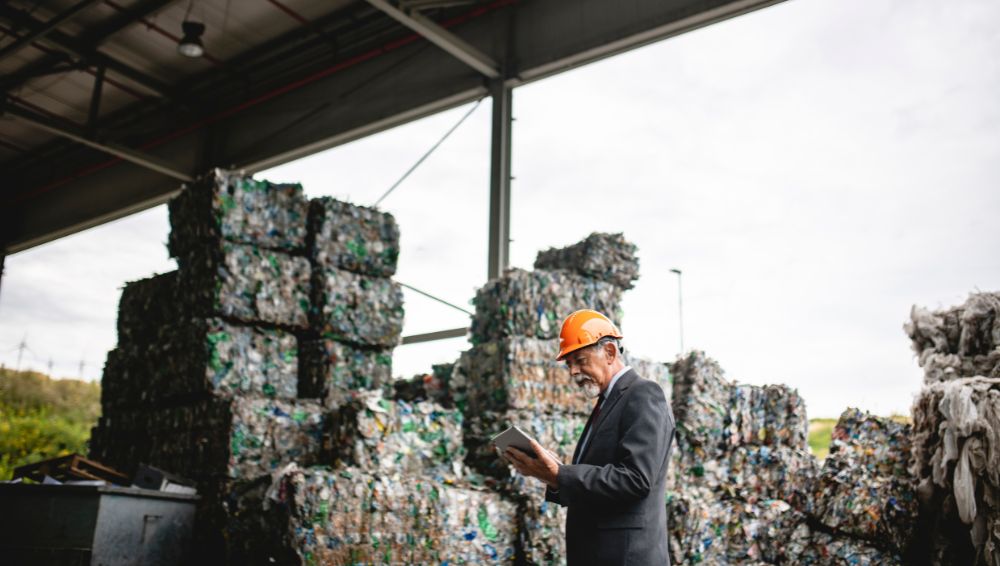
Keep in Mind
When managing waste, follow these important guidelines. Arcannwaste recommends against disposing of electronic devices such as cell phones, computers, printers, and TVs in roll-off dumpsters.
For instance, cell phones contain batteries that should never be discarded in dumpsters or regular trash. Whenever possible, remove the battery and dispose of both the phone and battery through eco-friendly recycling methods.
Additionally, avoid placing non-biodegradable items or materials that could contaminate groundwater in the dumpster.
All other acceptable items can be safely disposed of in the dumpster, making it easier to declutter your home or workplace efficiently.
Frequently Asked Questions
What cannot be placed in a dumpster?
There are some materials that have different rules for disposal, but there are also some items that you can’t throw in a dumpster no matter where you are.
This includes things like refrigerators, tires, chemicals, car batteries, railroad ties, and any other materials that are toxic or dangerous in some way.
These items pose a significant safety hazard and could damage the container, so it’s important to be aware of what you can and cannot put in a dumpster.
How long can you keep the dumpster?
The most reliable dumpster rental companies will give you around five to seven days to fill it up. The reality is that the average stay of a dumpster on a driveway is only three and a half days.
So if you’re feeling pressure to fill it up quickly, don’t worry – you have more time than you think!
What happens if you put a TV in a dumpster?
You might not know it, but those old electronics gathering dust in your home could be considered hazardous waste.
That’s because they often contain materials like mercury. In fact, 19 states have already banned e-waste from landfills.
So before you toss your old TV or computer, check to see if your state has any regulations about disposing of electronic waste.
What can you not put in a dumpster bag?
Waste Management is unable to accept any toxic or hazardous materials in Bagster bags like paint, oil, batteries, fluorescent light bulbs or ballasts, appliances, electronics, food waste, railroad ties, tires, medical waste, pesticides, chemicals, etc.
If you have any questions about what can or cannot be placed in a Bagster bag, please contact our customer service team for more information. Thank you for your cooperation!
What kind of surface should a dumpster be placed on?
The ideal spot for a dumpster is a flat surface like concrete, asphalt, or hard-packed dirt or gravel. That could be your driveway, parking lot, street, or work site.
Conclusion
As you navigate through your dumpster service needs, you’ll encounter a plethora of available options. It’s essential to dedicate time to thoroughly evaluating each option to secure the most appropriate service for your specific requirements.
This becomes particularly crucial given the diverse types of waste necessitating disposal. Familiarizing yourself with the regulations governing dumpster usage is equally essential.
For instance, if your project involves a construction site, it’s likely that a larger dumpster will be necessary compared to what suffices for a small-scale cleanup endeavor.
By diligently exploring all available options, you can discover the optimal service at the most competitive price. We appreciate your attention to our article on Waste Management Dumpster Rental.
Understanding waste management can be challenging, but we hope our post assists you in making informed decisions for optimal results. We are always looking for ways to improve our services.


